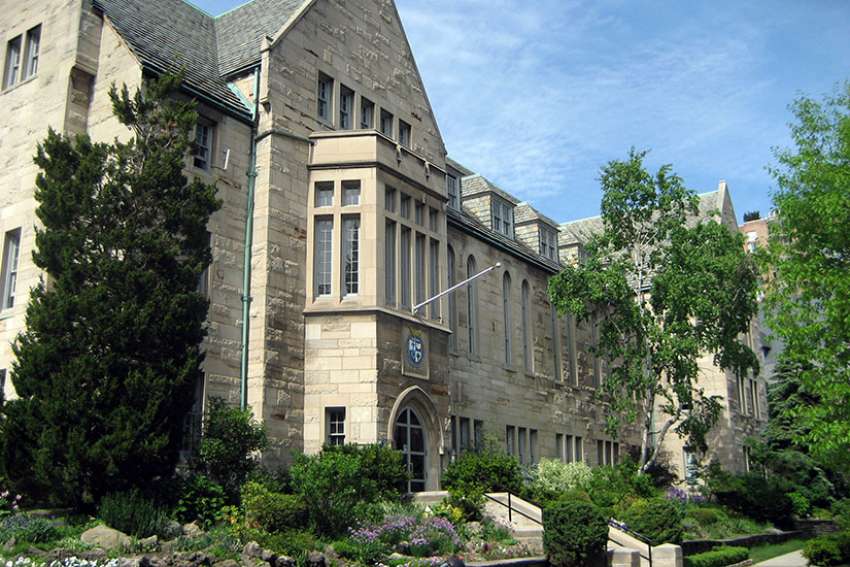That’s the message Fr. Peter Cameron, author and chair of the department of homiletics at St. Joseph Seminary in New York, delivered to his audience in the inaugural Angelic Doctor Lecture at Toronto’s Newman Centre last month.
“The pursuit of wisdom is more noble than other human pursuits because through this pursuit the human being approaches to the likeness of God who made all things in wisdom,” said Cameron, a member of the Dominican Order. ”And since likeness is the cause of love, the pursuit of wisdom especially joins the human being to God in friendship.”
He continued by saying that while this is possible at all post-secondary institutions, Catholic universities are better suited to foster this deepened friendship.
“The singular purpose of the Catholic university is to provide a sacred locus where that common of divine charity can flourish,” said Cameron, who is also the artistic director of Blackfriars Repertory Theatre in New York City. “(For) in the progress of knowledge the human mind is most felt if its natural intelligence is strengthened by new light, the light of faith.”
This strengthening occurs as faith liberates a student beyond the limitations of human reasoning in fulfilling what Cameron refers to as a natural desire for truth.
“The desire for truth spurs reason always to go further,” he said. “At the summit of its searching, reason acknowledges that it cannot do without what faith presents. Faith builds upon and perfects reason. Illuminated by faith, reason is set free.”
Faith, he argued, allows the student to obtain the answers, which elude reason alone, to life’s fundamental questions. These include the meaning of life, existence beyond this world and why evil exists while universal justice does not.
To ignore these questions simply because human reason alone fails to find the answers is to ignore a person’s inherent desire for truth, he said.
“In our common, satiable search for meaning, purpose (and) truth, faith is not optional,” he said. “Faith in divine revelation speaks to all of these questions and more. When one believes the testimony offered by God one receives answers to the questions of life and those answers are susceptible to support, defense and illumination by reason.”
There is, however, one fundamental question which human reason is able to answer, added Cameron, although many academics outside of Catholic universities still dispute it.
“Ironically, one thing that human reason all on its own is very good at it is bringing us to the certainty of the reality of God. There has been implanted by nature something that leads to the knowledge of (God’s) existence.”
Andrew Spencer, a 23-year-old student at the University of St. Micheal’s College, is one of about 100 who attended Cameron’s lecture. Afterwards, he agreed that the pursuit of knowledge and wisdom can bring one closer to God, but only if joined with prayer.
“Getting closer to God, it is not simply an act of studying,” he said. “There needs to be a point when we are thinking what has God revealed to us. In having a relationship with Him we need to take what we learn in study and take that to prayer.”
Cameron, too, acknowledged the role of prayer.
“It is what we are meant to do with our desires so that the desire doesn’t torment us. This is why the Catholic university student does not distinguish too much between oratory and laboratory.”


